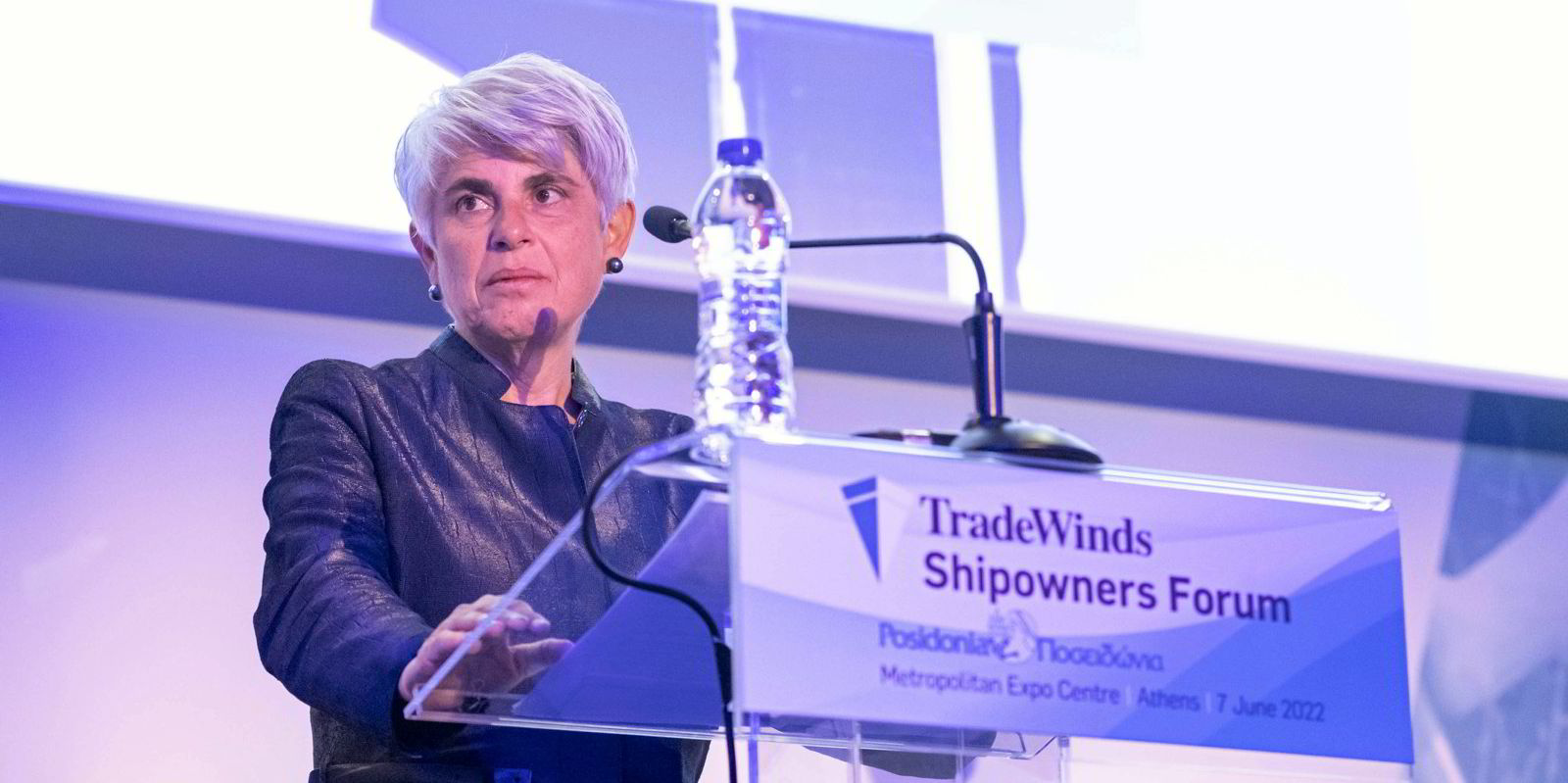Navios Maritime Partners managed to increase its profitability in the first quarter, helped by capital gains from several ship sales and strong earnings from the container ships and tankers in its diversified fleet.
The US-listed shipping owner and operator of more than 170 ships in the water and under construction reported net income of $99.17m for the first three months of the year, 16% more than in the same period last year.
About a third of that profitability came from a $33.5m net gain from the sale of eight ageing Navios Partners ships in the quarter, for total gross proceeds of $160m.
TradeWinds has already reported on all these deals — as it has on another five ship sales agreed by Navios Partners in the second quarter and confirmed by the company on Tuesday.
Navios Partners' latest five sales will add $81.9m in total gross proceeds to second-quarter results.
Angeliki Frangou-controlled Navios Partners expanded into a shipping behemoth in 2021 after absorbing its then stand-alone affiliates Navios Maritime Containers and Navios Maritime Acquisition.
Another 36 Navios Holdings bulkers were acquired in in the summer of 2022.
The company has since engaged in a large-scale fleet recycling drive, shaking out older tonnage while ordering a raft of newbuildings.
As part of that strategy, Navios Partners has confirmed selling about 20 bulkers, tankers and boxships since June last year.
Its current, mixed fleet is slanted towards bulkers of which it has 81 units, alongside 47 boxhips and 45 tankers with a total contracted revenue of $3.4bn.
These fleet numbers include 21 newbuildings — mostly LR2 tankers and intermediate-size container ships due for delivery between the second quarter of 2023 and the first half of 2026.
The company funds those newbuildings through elaborate financial transactions. On Tuesday, Navios Partners unveiled that in order to raise money for six of its container ship and tanker newbuildings, it signed a $178m sale-and-leaseback deal in May and a $165.6m export credit agency-backed facility in April.
As finance costs rise amid higher interest rates, chief executive Frangou pledged on Tuesday to continue reducing the company's leverage from its current net loan-to-value (LTV) level of 42% towards 25% or even 20%.
Boxships, tankers going strong
It was tankers and container ships that propped up Navios profitability in the first quarter.
Time charter equivalent earnings (TCE) for tankers nearly doubled year-on-year to $28,477 per day, while TCE for boxships rose by nearly a third over the same period to $34,987 per day.
Container ships especially are “performing much better than we thought”, Frangou told analysts at a conference call later on Tuesday.
Navios Partners' entire container ship fleet is fully booked for the remainder of the year "at attractive rates," she added.
Bulkers suffered, by contrast, dropping by 45% to $10,998 per day.
Weak bulker performance was a drag on profits. Stripping out one-off items such as the capital gain on its vessel sales, Navios Partners’ adjusted net income dropped to $65.7m, its weakest reading in eight quarters.
Overall, however, the diversification of the Navios Partners fleet and its bigger size year-on-year led to revenue rising at an annual pace of 31% in the first quarter, to $309.5m.
Frangou also expressed optimism that the bulker market “can be much healthier” in the second half of the year than it was in the first.
In line with its upbeat view on markets, Navios Partners has already said in late April that it was maintaining its dividend at $0.05 per common unit, unchanged for a 12th consecutive quarter.
Major unitholders of the company as of mid-March were affiliated Navios Holdings with a 10.5% stake, Frangou herself with 5.1% and private equity fund Pilgrim Global ICAV with 10.2%.
The company's share was down 0.9% at $22.40 in early New York trading, giving the company a market capitalisation of $676m. That is far below the $3.7bn net asset value of the company’s fleet as of end-March.





